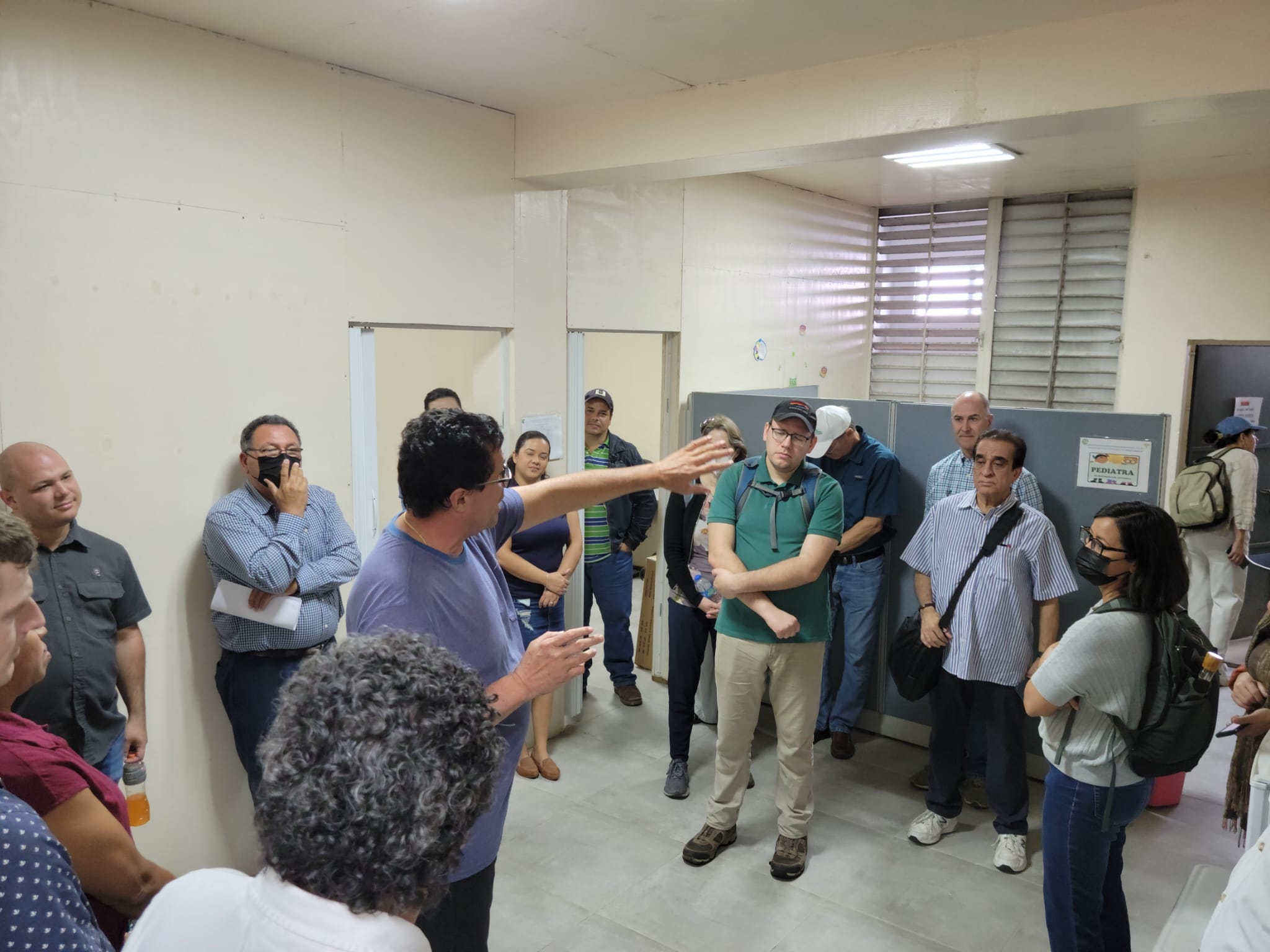Set the foundation for building just and equitable adaptive capacities by facilitating the creation of multidisciplinary networks of players, access to knowledge and resources, through the engagement of citizens and the government in climate actions that are equitable.
To form a regional knowledge-action network of researchers and stakeholders that can evaluate needs, provide technical-scientific expertise, facilitate communication, and build cross-regional connections and capacity in climate adaptation from the community micro-level, to territorial meso-level, and macro-level of regional networks.

Early decades of the program focused on understanding the use of climate information at regional scales (e.g., through experimental seasonal outlooks), improving predictions and scenarios, building capacity for drought early warning, and advancing the science of climate impact assessments. Much of this work is now the focus of other federal programs. More recently, emphasis has shifted and incorporates the growing urgency to advance approaches that tackle the complex societal issues surrounding adaptation planning, implementation, and building community resilience that incorporate the intersection of multiple natural hazards and social stressors. To do so, CAP/RISA continues to prioritize and fund collaborative approaches that incorporate multiple knowledge sources and integrate social, physical, and natural science, resulting in long-term support of and increased capacity for communities. In addition, CAP/RISA supports cutting-edge social science on the impacts of climate change on communities, challenges and opportunities for adaptation, and inclusive methods of engagement.

A human-centered approach to build adaptive capacities of Puerto Rico and US Virgin Islands

(Co-leads: T. Muñoz-Erickson, USDA Forest Service; P. Méndez-Lázaro, UPR-Medical Sciences)
Integrated and collaborative approaches to adaptation planning, implementation, and building community resilience require a baseline understanding of existing governance capacities. This WG will be responsible for mapping and analyzing the multiple levels of adaptation governance and decision-making from community to territory and federal levels.

(Co-leads: G. Guannel, University of Virgin Islands; S. Tuler, Worcester Polytechnic Institute)
We propose to translate existing knowledge, create new knowledge and/or identify outstanding research questions to clearly understand and communicate the existing climate threats to communities (as identified earlier), and how climate change will amplify these threats.

(Co-Leads: Mimi Sheller, Worcester Polytechnic Institute; Kim Waddell, University of Virgin Islands)
Following co-production best practices (Cook et al., 2021, Muñoz-Erickson et al., 2017) we will bring together different actors and knowledge systems to collaborate in prioritizing strategies that build system resilience and adaptive capacity as well as normative pathways that define desirable and fair outcomes for transformation.
Our team is a multidisciplinary one composed of researchers and students representing 12 academic institutions located in Puerto Rico, the United States Virgin Islands, New York, Massachusetts, Texas, Arizona, and Florida, aiming to address issues related to climate change in PR and USVI. We are improving and expanding partnerships through the development and engagement of stakeholders in the region.

We are a multidisciplinary team of universities, agencies, and non-governmental organizations based
out of the Caribbean region seeking to address climate change issues by providing technical scientific knowledge, evaluating needs and co-producing climate adaptation capacities, strategies and actions that build on collectively produced insights and realistic locally grounded scenarios. We are enhancing and expanding partnerships through the development and convening of
stakeholders in Puerto Rico and USVI.